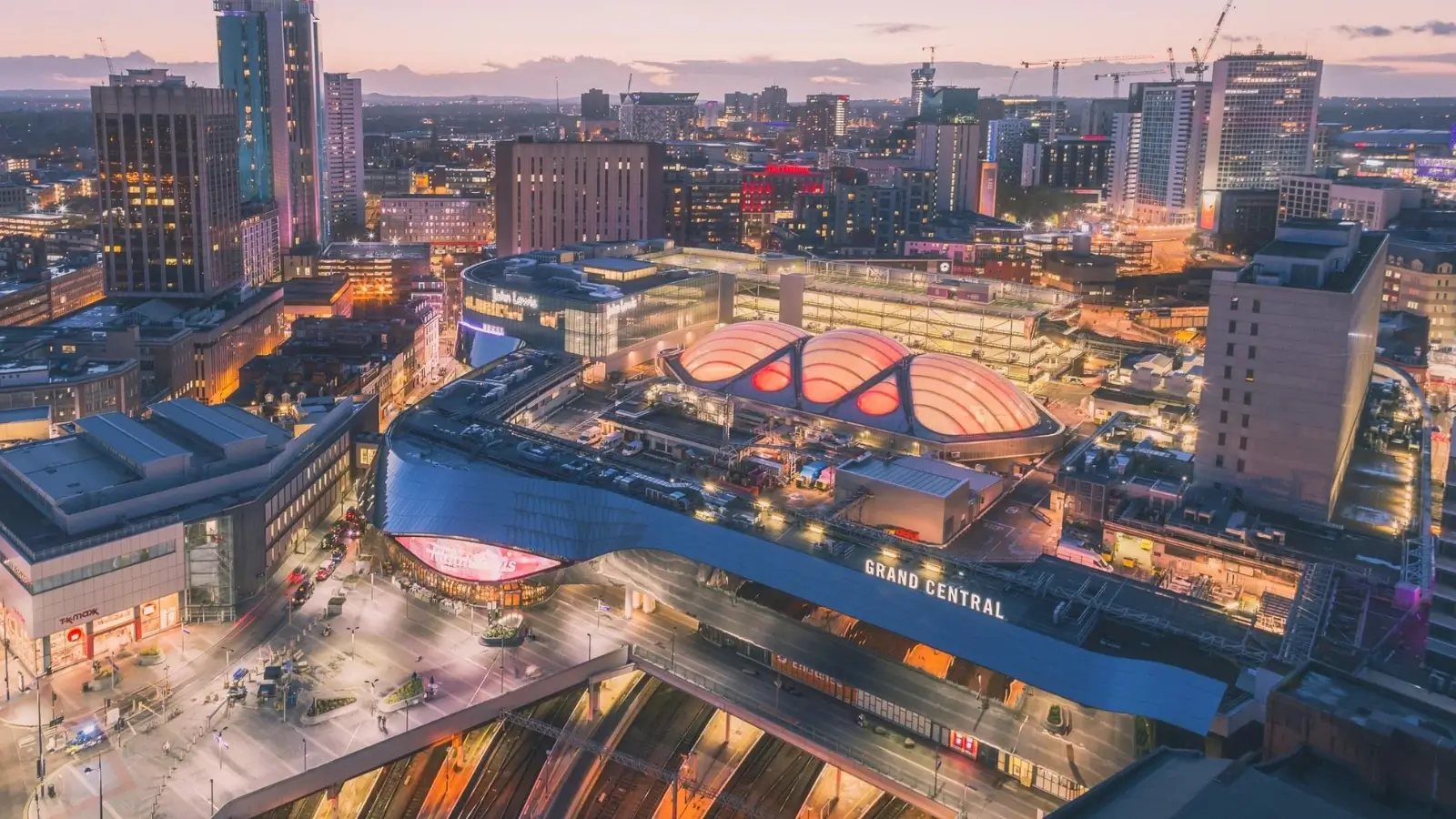


In recent years, Birmingham Property Investment has increasingly been viewed as a smart alternative to London’s often overheated and expensive market. With its major regeneration schemes, rapidly growing population, and thriving business environment, Birmingham is catching the attention of investors across the UK and abroad. But what exactly makes this West Midlands city a contender for the next big thing in UK property investment?
At the heart of Birmingham’s transformation is a sweeping wave of regeneration projects that are reshaping the city’s landscape and future. One of the most talked-about schemes is the Big City Plan, a 20-year vision that aims to expand the city centre by over 25%. This ambitious plan includes new public spaces, commercial zones, and thousands of new homes.
Projects such as Paradise Birmingham, a £1.2 billion mixed-use development, and Smithfield, which is set to create a brand-new destination of homes, markets and leisure space, are already transforming key areas of the city. These developments are not only modernising Birmingham’s image but also significantly boosting the demand for nearby residential properties—especially among young professionals and families looking to settle in well-connected and revitalised neighbourhoods.
For property investors, regeneration often signals long-term capital growth, and Birmingham’s development trajectory certainly ticks that box.
Birmingham has one of the youngest populations in Europe, with nearly 40% of its residents under the age of 25. This youthful demographic is a crucial factor when assessing rental demand and long-term growth potential.
A large student population, with five universities including University of Birmingham and Aston University, keeps the rental market buoyant throughout the year. What’s more, many graduates are choosing to remain in the city after their studies, adding to a growing pool of skilled professionals seeking quality rental accommodation in well-located areas.
This demographic trend not only supports consistent rental yields but also creates a future pipeline of first-time buyers, making Birmingham a sustainable long-term play for property investors.
Birmingham is the second-largest city economy in the UK and continues to attract major employers from various sectors. The city has seen rapid growth in business, finance, tech, and creative industries, supported by competitive costs and strong local talent.
HSBC, Deutsche Bank, PwC, and Goldman Sachs are among the major companies that have either relocated or expanded operations in the city in recent years. The Bruntwood SciTech development at Innovation Birmingham and Birmingham Knowledge Quarter are further bolstering the city's reputation as a hub for technology and innovation.
With more high-paying jobs being created locally, the demand for high-quality housing is naturally rising. Investors looking for reliable tenant demand and future capital growth will find Birmingham’s economic fundamentals encouraging.
Perhaps one of the most influential infrastructure projects boosting Birmingham’s investment potential is High Speed 2 (HS2). When completed, HS2 will cut travel times between Birmingham and London to just 49 minutes. While parts of the project have faced delays and political debate, its long-term impact on the city's connectivity is undeniable.
Already, areas around Curzon Street Station, where the HS2 terminus is being developed, have seen a sharp increase in interest from investors and developers. Improved connectivity to the capital is expected to further enhance Birmingham’s appeal to commuters, businesses, and international investors alike.
Alongside HS2, Birmingham boasts an extensive public transport network, including the West Midlands Metro extension and ongoing improvements to the local rail and road systems. All of this makes the city an increasingly attractive place to live and work.
One of the biggest draws of Birmingham is its relative affordability. While house prices in London remain out of reach for many first-time buyers and investors, Birmingham offers a more accessible entry point into the property market.
According to recent data, the average property price in Birmingham is significantly lower than in the capital, while rental yields in some areas outperform those found in many parts of London and the South East. Locations such as Digbeth, Edgbaston, Jewellery Quarter, and Aston are increasingly being targeted by investors for their blend of affordability, rental demand, and capital growth potential.
This balance of lower purchase costs and healthy rental income makes Birmingham an ideal option for both first-time landlords and seasoned portfolio investors.
Birmingham is also at the forefront of the build-to-rent (BTR) and co-living movements, which cater to the lifestyle preferences of modern urban renters. Purpose-built rental developments with concierge services, gyms, co-working spaces and communal lounges are becoming increasingly popular, particularly with young professionals who value convenience and community.
Major developers are taking notice. Schemes such as The Bank, Moda Living’s The Mercian, and New Monaco are offering tenants a premium rental experience in central locations—attractive propositions for investors seeking long-term rental security and minimal void periods.
These developments also meet a growing tenant demand for flexibility and service, which are increasingly viewed as key differentiators in a competitive rental market.
Birmingham’s rental market has remained strong even during periods of national economic uncertainty. A shortage of quality rental housing in central and suburban locations continues to put upward pressure on rents.
Tenant demand is supported by a large student base, graduate retention, professionals relocating for work, and an influx of people priced out of London. This broad tenant demographic gives landlords the confidence that their properties will remain occupied and profitable.
With yields averaging between 5–7% in key areas and the potential for capital appreciation as regeneration projects mature, Birmingham’s rental market is a cornerstone of its property investment appeal.
Another aspect that strengthens Birmingham’s position in the UK property landscape is its focus on sustainability and liveability. The city council has made significant commitments to reduce emissions, enhance green spaces, and develop more walkable communities.
Schemes like Birmingham’s Clean Air Zone and investments in public transport aim to support a healthier, more accessible urban environment. Such initiatives are increasingly important to tenants and buyers alike, particularly among younger demographics who prioritise environmental and social responsibility.
For investors, this focus on future-proofing adds another layer of reassurance, aligning with the growing emphasis on ESG (Environmental, Social and Governance) principles in investment decisions.
So, is Birmingham the next big thing in UK property investment? The evidence suggests a strong case. With a young and growing population, major regeneration projects, thriving business sectors, and improving connectivity, the city is undergoing a transformation that’s hard to ignore.
Birmingham Property Investment offers a compelling combination of affordability, rental yield, and long-term capital growth. As more people look beyond London for profitable opportunities, Birmingham stands out as a city with all the right ingredients to lead the next wave of UK property success.
For investors willing to get in early—or even those looking to diversify—Birmingham isn’t just a good opportunity. It may well be the smartest one.